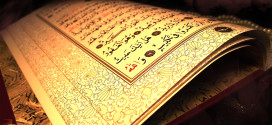Shaykh Faraz Rabbani shares seven principles for making our work an act of worship. These are seven principles understood clearly from the Qur’an and Prophetic Sunna: 1. Purpose Make your life, career, and work truly a means to seek Allah Himself. 2. Seeking benefit Seek Allah in work by seeking true benefit: for yourself and others, both worldly and …
Read More »Islamic Teachings
Prophet Muhammad’s Care for the Poor
By: Islamstory.com Prophet Muhammad (peace be upon him) feared for his nation from surplus more than he feared from poverty: “By Allah, it is not poverty about which I fear for you, but I fear in your case that (the worldly) riches may be given to you as were given to those who had gone before you, and that …
Read More »Freedom of Marital Choice in the Light of the Qur’an and A hadith and its Relevance to Muslim Civil Laws – Asiff Hussein
This paper deals with a much disputed aspect of Islamic civil law, namely, the position of the wilayat (marriage guardianship) and the legal capacity of Muslim women to contract marriage in accordance with the rules laid down in the Qur'an and the Sunnah or the Prophetic Tradition. The purpose of this paper is to elucidate that Muslim women are conceded …
Read More »How Muslims Wash, Bury Their Dead
A sheet is wrapped around a female dummy to demonstrate the washing and shrouding process for a Muslim burial at the Islamic Society of Greater Charlotte.Credit Tasnim Shamma When a loved one dies, most of us turn to a funeral home or crematorium to take care of the body. In the Islamic tradition, it’s different. Family members often help …
Read More »Knowledge is wealth IN GOOD FAITH – Amal Al-Sibai Saudi Gazette
A person’s rank and significance in society should be measured not by his or her wealth, a sum of money in a bank account, a family name, ancestry, beauty, or race, but by the extent of knowledge he or she has strived to attain. Truly, knowledge is the most sought after prize one can ever achieve. The Prophet Muhammad (peace …
Read More »A Code of Conduct for Establishing and Using Mosques By: Dr. Spahic Omer
Since the mosque phenomenon was the nucleus of the Muslim life and activities, a code of ethics for establishing and using it had to be created under the guardianship of Prophet Muhammad (pbuh) and divine revelation, lest some people might start misusing it, intentionally or otherwise, or might start developing a code of moral principles on their own which, as …
Read More » Sri lanka Muslims Web Portal Sri Lanka Muslims News Center
Sri lanka Muslims Web Portal Sri Lanka Muslims News Center





